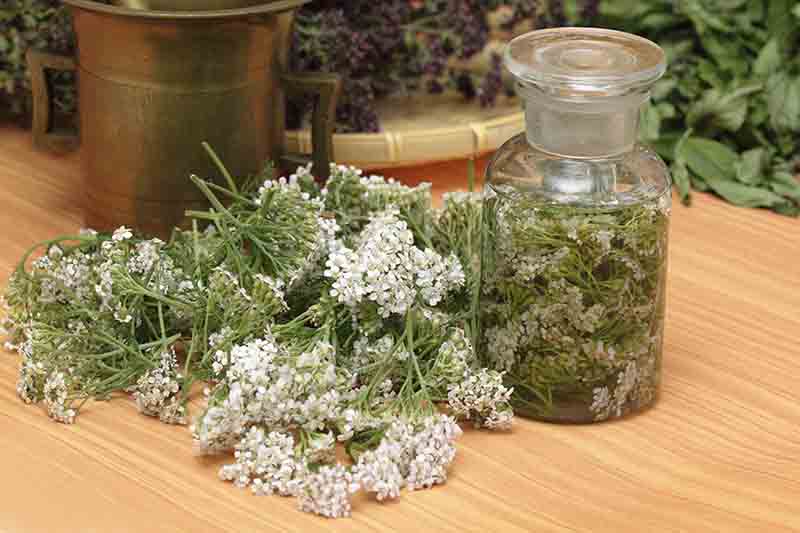Yarrow has been used in many cultures for many health conditions, but there is little scientific evidence to support its benefits. Yarrow can also interact with certain medications, including blood thinners, medications for high blood pressure, and medications that reduce stomach acid.
Yarrow may be unsafe for people who are pregnant, breastfeeding, or have bleeding disorders. It may also cause an allergic reaction in people who are sensitive to the Asteraceae/Compositae family, which includes ragweed, chrysanthemums, marigolds, and daisies.
Does not grow well at all in Tucson Az.
Yarrow (Achillea millefolium) has many medicinal uses, including:
Healing wounds: Yarrow has been used to stop bleeding and promote healing of wounds and cuts. It can be applied directly to wounds or crushed into a paste with water.
Treating fevers and colds: Yarrow tea has been used to treat fevers and colds.
Relieving pain: Yarrow can help with toothaches, muscle spasms, and PMS spastic pain.
Reducing inflammation: Yarrow has been used to treat Crohn’s disease and ulcerative colitis.
Soothing stomach issues: Yarrow may help with indigestion, heartburn, and stomach cramps.
Gardening: Yarrow can be grown as a cut flower or dried flower, and its cultivars come in a variety of colors.
Yarrow has been used in many cultures for many health conditions, but there is little scientific evidence to support its benefits. Yarrow can also interact with certain medications, including blood thinners, medications for high blood pressure, and medications that reduce stomach acid.
Yarrow may be unsafe for people who are pregnant, breastfeeding, or have bleeding disorders. It may also cause an allergic reaction in people who are sensitive to the Asteraceae/Compositae family, which includes ragweed, chrysanthemums, marigolds, and daisies.

